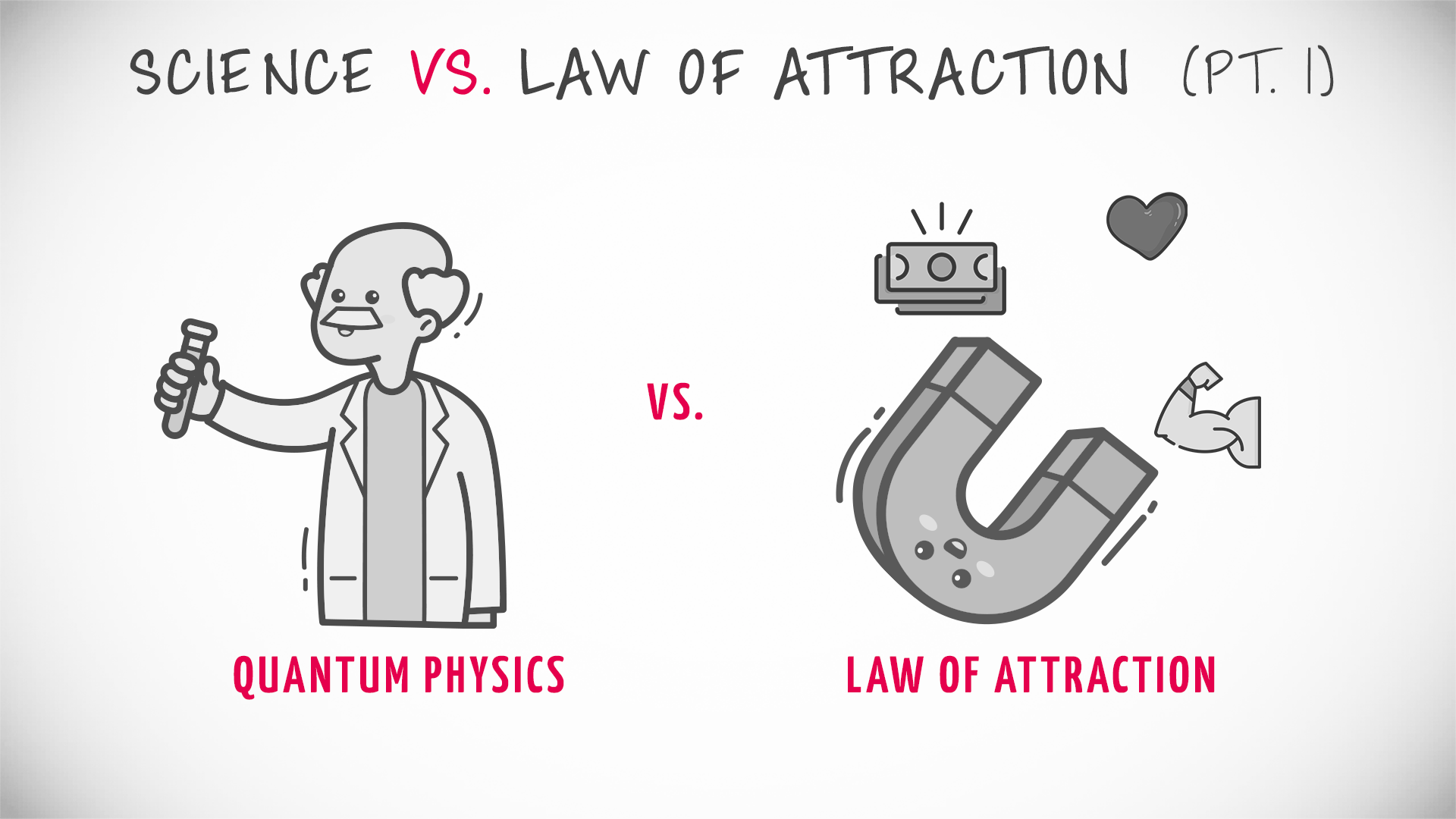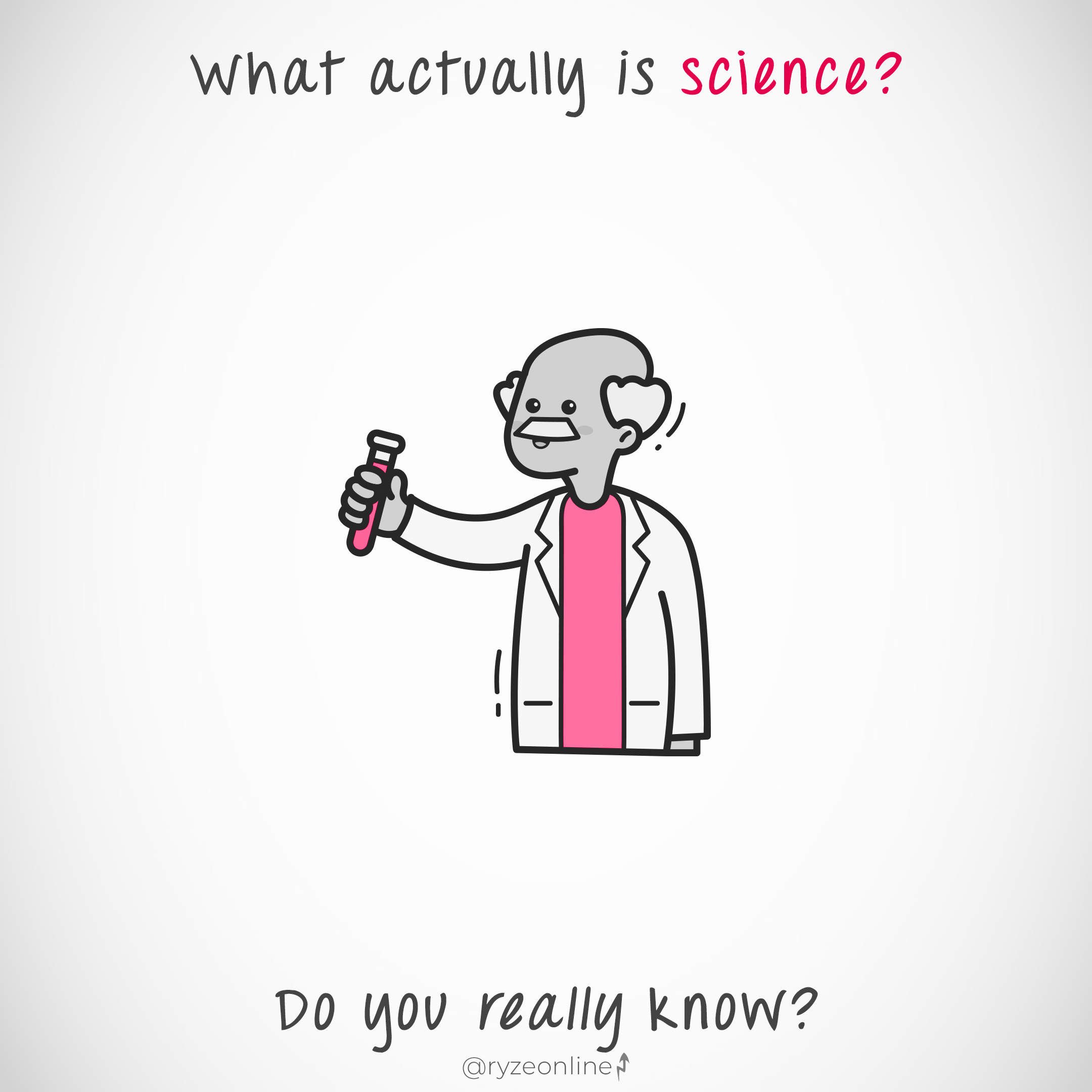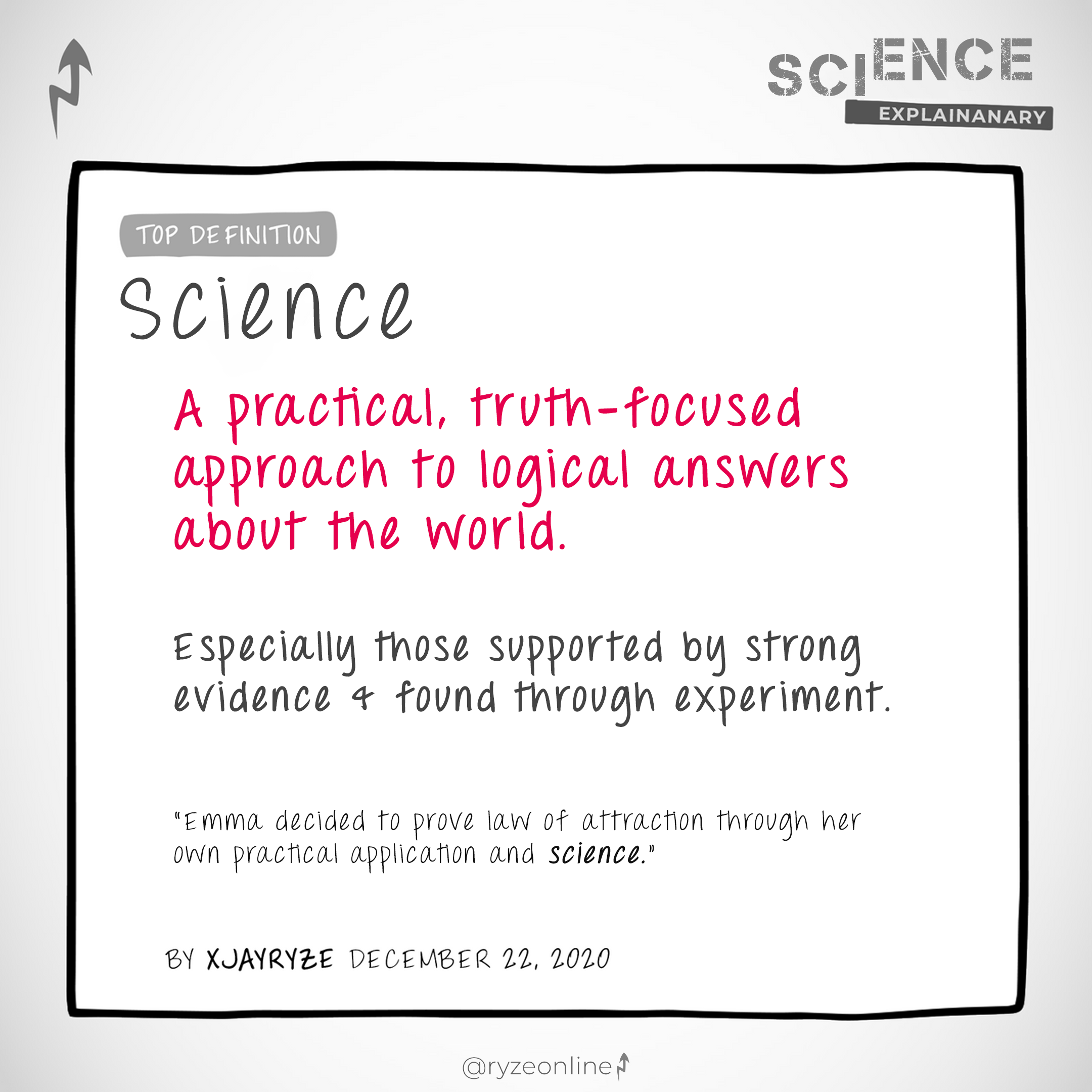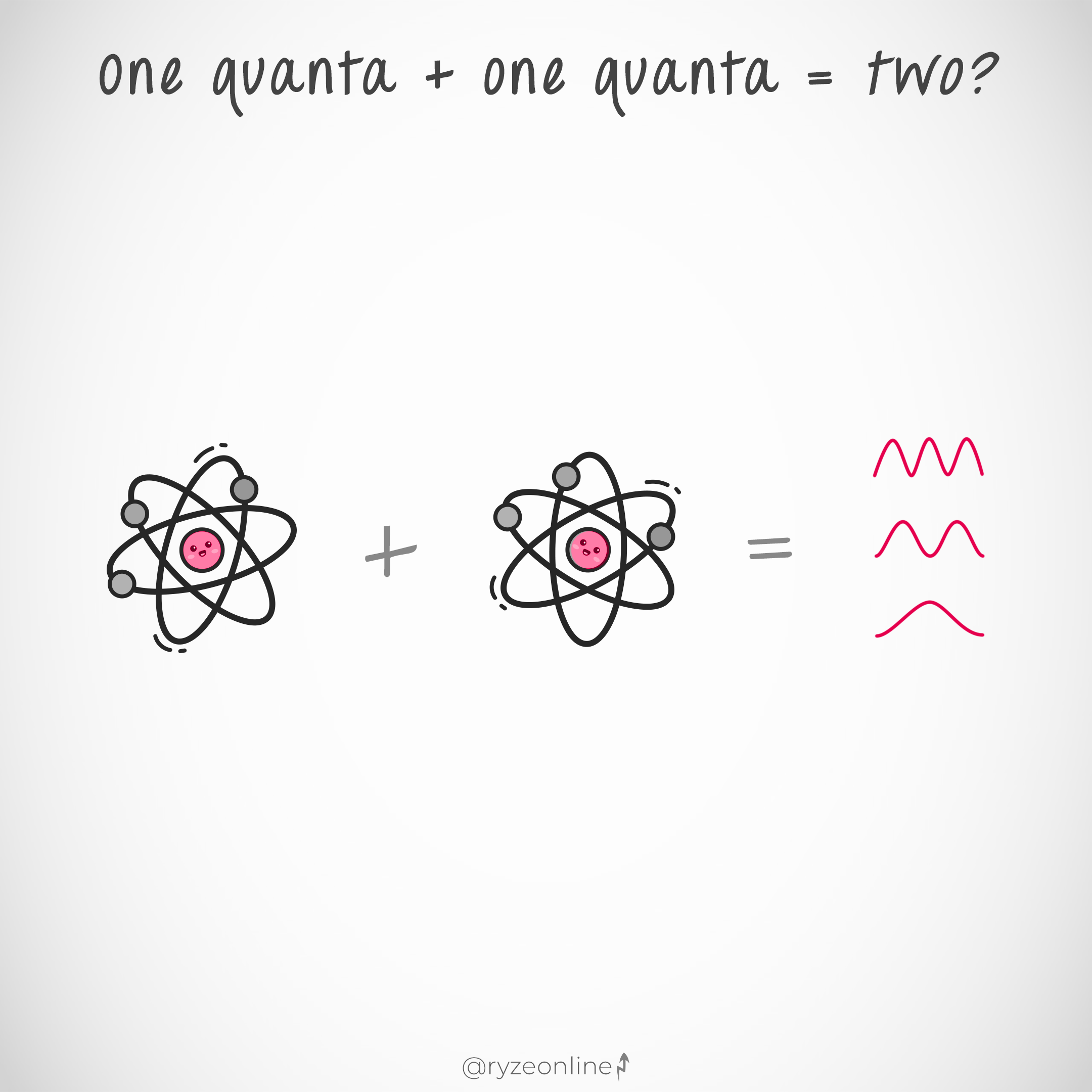
“Dad, I’m fed up with this Law Of Attraction crap.”
Emma had been struggling lately. She wanted to win a modeling contract, but it went to someone else. She tried selling her own NFTs, but didn’t break even on her investment. She wanted to get a role in a movie, but hadn’t heard back since her audition. So I figured I’d take her for a drive to Niagara Falls, since the beautiful scenery, cascading water, and fresh air always cheered her up. It was quite the drive though, so I threw on some tunes until Emma felt like talking… which was apparently, now.
“Excuse me?”
“My life’s been trash lately, nothing’s working out, if Law Of Attraction was real, I’d be crushing it.”
“Well, I’m sorry you feel that way, but you know your mother and I have never forced our beliefs on you. You’re free to believe in whatever you want.”
“Grr! That’s such a cop-out!”
“How so?”
“Because you just don’t want to prove LOA exists with –like– real science and stuff.”
“Ah yes, ‘real science and stuff’, how dare I avoid that when talking to a sulking child who hasn’t gotten her way.”
“I just–” Emma started, but I interrupted her.
“--Ah-ah. I know, you just want rock-solid scientific proof that the law of attraction is real, and you want dear old Dad to single-handedly do all the thinking for you until you’re convinced LOA is real.”
“Well, when you put it that way it makes me sound like a jerk.” Her lip folded open into a pout.
“I’m aware.” My sardonic grin was rubbing a bit of salt in her wound but I couldn’t help myself. I’d long-ago taught Emma that if she wants to understand something she has to be relaxed, calm, and open-minded, not frustrated, sulky, or whiny.
“Dad! C’mon!”
“Alright, fine, but you better remember this when I’m old and decrepit!”
“Oh, but Daddy-o, I thought you’re manifesting eternal youth.”
“Smart-ass. Do you want to know if LOA is real or not? Because if you do, we only have time for sarcastic barbs from one of us.”
“Okay, fine, please tell me…
…I’d love scientific proof for this LOA thing.”
“Well first, let me ask you this: what is science?”

“Huh? It’s, like, labs and experiments and stuff. Math, logic, physics, biology, whatever.”
“Those are some aspects involved in science, yes, but what’s the process of science? Of creating scientific proof?”
“I don’t know, it’s like when you run experiments & calculations and end up proving some formula or result with rock-solid, total, undeniable conclusiveness. Or something.”
“You’re getting closer, but think about this list of things:
- Knowing the earth is round
- Running a 4-minute mile
- Making a heavy metal craft fly
- Holding thousands of songs in our hand
Do you know what hundreds, even thousands, of 'educated' scientists of their time said about each of these things?”
“Not really…”
“They all said --with a certainty often crossing into arrogance-- that these things were ‘impossible.’ So if science is all about rock-solid, undeniable conclusiveness, why are many scientists massively wrong about so many things?”
“Um, er, I…”
“Do you know that ‘intellectuals’ and ‘doctors’ in the medieval ages would press a sacrificed puppy or kitten onto a tumor because they thought that cancer was a ‘ravenous wolf’ that would ‘feed off the sacrificed animal rather than the human patient.’?”
“You’ve got to be making that up.”
“Nope, check out the book ‘Quackery: A Brief History of the Worst Ways to Cure Everything’ by Dr. Lydia Kang.”
“Fine but they were dumb back then, science is smarter now.”
“Is it? Because the ‘smart minds’ back then were absolutely certain they were onto the truth and ‘doing the right thing’, and that attitude hasn’t really changed talking to many scientists today, as far as I can tell. For example: One day scientists will publish a study saying that we evolved from apes. The next day, other scientists will publish a study saying we evolved from reptiles. On a third day, they’ll publish a study that says we evolved from neither. It’s enough to make one’s head spin. Most science experiments I’ve looked at have always boiled down to 'strong evidence' pointing one way, then it being disproved, followed by stronger evidence pointing another way. This happens often, with science flip-flopping direction many times over many experiments over many years. Have you talked to a self-proclaimed ‘logical’, ‘science-person’ recently? How did it go?”
“Sort of. I’ve had exes in STEM who claimed to be ‘hyper-logical’, but to me they were mostly arrogant know-it-alls. I’ve had science professors who wouldn’t let anyone question or argue with the textbook, even when my classmates were asking good questions and making real sense.”
“This often happens because our society praises logic, science, and ‘provable’ math so highly. Our society praises people who are seen to be ‘right’ and makes fun of those who dare to be ‘wrong’, for the most part. So even seemingly ‘logical’ people end up abandoning truth-seeking and true logic in favor of a pretense of logic and whatever makes them ‘look good’ or ‘wins debates’ or makes them ‘appear to be right.’”
“Including many scientists who have fears, foibles, and flaws that cause them to write things off as impossible or to attack others' work, I imagine.”
“Yes. A truly logical mind is an open-mind. If you encounter snap judgments, drastic assumption, and heavily agenda’d bias, chances are you’re not dealing with a very scientifically-minded person, at least for the moment. True scientists aren’t just able to admit being wrong, they actively seek it out, because they care about finding the truth, not about being right. Thomas Edison conducted many experiments to get the lightbulb right and delivered his famous quote that went something like:
‘I’ve not failed 10,000 times. I have not failed once. I have succeeded in proving that those 10,000 ways will not work. When I have eliminated the ways that will not work, I will find the way that will work.’
To me, that’s the approach of a true scientist, and anyone who approaches things otherwise likely isn’t really seeking the truth properly.”
“So wait, are you saying most science-peeps are lying?”
“I’m not 'saying' anything, I’m mainly asking questions and making observations, so far at least. I want to be sure you understand that for decades... science will say ‘for certain’ that Einstein was right about X, Y, and Z. Then for decades after they’ll say ‘for certain’ that Einstein was wrong about X, Y, and Z. Science loves saying things 'for certain', but the thing most people don’t like to admit is... that science & math are often far less certain than they pretend to be. They're often inadequate for explaining major truths about life. And even when they do explain something, it often takes them years to prove something that poets, artists, or mystics already ‘knew’ and are benefitting from. Even comedians ‘get this’ stuff, often on deeper levels than many scientists may ever do.”
I then broke out into my best Bill Hicks impression as I quoted one of his stand-up routines:
“The world is like a ride in an amusement park, and when you choose to go on it you think it's real because that's how powerful our minds are. The ride goes up and down, around and around, it has thrills and chills, and it's very brightly colored, and it's very loud, and it's fun for a while. Many people have been on the ride a long time, and they begin to wonder–
‘Hey, is this real, or is this just a ride?’ And other people have remembered, and they come back to us and say, ‘Hey, don't worry; don't be afraid, ever, because this is just a ride.’ And we… kill… those people.
‘Shut him up! I've got a lot invested in this ride, shut him up! Look at my furrows of worry, look at my big bank account, and my family. This has to be real.’
It's just a ride– But we always kill the good guys who try and tell us that, you ever notice that? And we let the demons run amok… But it doesn't matter, because it's just a ride. And we can change it anytime we want. It's only a choice. No effort, no work, no job, no savings of money. A choice, right now, between fear and love. The eyes of fear want you to put bigger locks on your doors, buy guns, close yourself off. The eyes of love instead see all of us as one.
Here's what we can do to change the world, right now, to a better ride. Take all that money we spend on weapons and defenses each year and instead spend it feeding and clothing and educating the poor of the world, which it would pay for many times over, not one human being excluded, and we could explore space, together, both inner and outer, forever, in peace.” - Bill Hicks, Comedian
“OK, um, first thank you for that incredibly accurate Bill Hicks monolog, Mr. Savant, and secondly, what am I supposed to be getting from all this… that ‘science sucks hard’?”
“No, not at all...
Science is amazing, and I’m a fan of logic, reasoning, experimentation, & the scientific method.”
“Right, but you’re saying that science isn’t about undeniable conclusiveness like I thought?”
“You tell me. Is math the path to all truth? Can it prove all the important parts of life? Is science all about undeniable proof & ego-riddled arrogance slamming down anyone who thinks differently? Or is it about gentle, open-minded exploration and experimentation? Is one version of science better than the other? Is it a blend of both? You tell me what science is to you, and then we’ll take the discussion forward from there.”
Emma’s mouth squinched to the side and her eyes rolled up the opposite direction, giving her a cute “I’m thinking” face. I tapped my fingers on the steering wheel along to the beat of Taylor Swift’s ‘Shake It Off’ while I waited.
“To me science is…
…A practical, truth-focused approach to logical answers about the world supported by strong evidence & found through experiment.

That’s why science can be wrong, or disagree, or change it’s mind over time, because even ‘strong evidence’ can be overturned with new information.”
“Fair enough, but in your definition is there room for ego? Arrogance? ‘Absolute certainty?’ Heavy-handed declarations of what’s ‘possible’ or what’s ‘impossible?’ Total undeniable evidence, as you said?”
“I guess not.”
“Good. Because it sounds like in your definition, science must be open-minded to being wrong. It sounds as if it’s open to an experiment only being 'right for a short while' until it’s disproved by even stronger evidence. It sounds as if that when scientists say ‘it’s not humanly possible to run a four-minute mile’, or ‘we can’t build a city on Pluto,’ it may only be a few decades until their rigid, overly-certain declarations are proven wrong. Am I understanding you correctly?”
“That’s the only reasonable approach to science I can think of. Anything else is just intellectual dick-measuring over ‘who is right’, just like my STEM-focused exes or my well-intentioned teachers at school, in my opinion.”
I opted not to reprimand Emma for her choice of language and continued on. “Ok, we’ll go with that then. But in that case, is it fair to ask for complete, total, and undeniable proof about Law Of Attraction?”
“Well, I mean, the fact that one plus one always equals two is complete and undeniable, right?”

“Maybe. Russell and Whitehead published the Principia Mathematica and in it, it took them 762 pages of dense mathematical notation just to prove one plus one equals two. :
"That sounds insane."
"Kind of, haha. And besides that, you actually said that one plus one always equals two, but to properly verify that, we’d need to check whether one plus one equals two until the end of time, which we don’t have the tech to do, so all we can say for certain is one plus one equals two most of the time, so far. On top of that ‘1’ isn’t an actual thing. ‘1’ isn’t an apple, or an orange, it’s an abstract concept that someone defined, and they use it to perform functions in ‘reality’, but again, ‘reality’ isn’t properly defined either. Like, is reality a personal mental construct determined by your senses, and if so, then is reality perceived the same for everyone? And even more importantly than all this, the realms of quantum physics we’re about to explore together may actually bring other parts of this into question.”
“Are you serious?”
“Yes. No. Probably not. But maybe. Potentially–
Look, I want to be clear, I’m not the world’s smartest scientist. I’m just doing my best to answer your question about Law Of Attraction. And like a ‘true’ scientist, you may need to let go of some heavy assumptions you may have about math, nature, physics, and so on. If you’re really interested in discovering the truth, assumptions can be major obstacles that prevent it.”
“So you’re saying I can’t even assume one plus one equals two?”
“Well, try not to get hung up on that specific equation, but, kind of. What I’m really saying is that even math isn’t the rock-solid proof you’re so hungry for, even though most people who aren’t mathematicians assume it is. You may want to check out Veritasium’s video called ‘Math Has A Fatal Flaw’, it talks about how there will always be ‘true statements’ that can’t be proven, and has fifteen million views last I checked. It doesn’t necessarily mean that one plus one doesn’t equal two, but more that one should be a bit more careful trusting math to explain important or deep truths about life. One of my favorite quotes from it goes: ‘There is a hole at the bottom of math… we will never know everything with certainty. There will always be true statements that can’t be proven. Check out this interesting food for thought from a Quora post:
‘In modern quantum physics it’s commonly known that the closer we look at reality and our physical world, the more it seems as though nothing is actually here or ‘true’. A quantum particle has the ability to be existing and non-existing at the same time depending on if it is observed. Things can be True, or False and ‘True and False.’ The closer we look at quantum particles, the more we see that everything is made of nothing. If everything is made of nothing then I would say 1 is nothing, and nothing + nothing is still equal to nothing. So therefore, 1+1=0.’”
“Er, so I can’t ask for total proof one-plus-one-equals-two-style?”
“Well, in your definition earlier, you said science is about seeking strong evidence but also being totally open to that evidence being overturned… even when we’re ‘sure’ we have the ‘right’ answers, correct?”
“Hmmm… I did say that, yeah.”
“So then what are you really asking for?”
“I don’t know. This is hurting my brain already.”
“Easy, relax, my sweet girl. I think I know what you’re getting at. What you’re really asking for is for…
‘The best insight science can offer regarding the law of attraction,’ yes?”
“Yeah! Thank you! See? You get me, you totally get me.”
“My pleasure. But I may have to challenge your thinking a bit before we proceed.”
“Don’t worry, I’m beauty and brains, I’m up for the challenge.”
“We’ll see. And if you are, then ask yourself this: why do you need scientific proof so badly? Many people succeed in many activities without knowing the ‘science’ behind them. Many chefs cook masterful meals without knowing food science. Many musicians create moving concertos without knowing music theory or the math behind sound frequencies. Many ‘manifestors’ manifest wonderful lives for themselves without getting hung up on the ‘science’ of it all. So wouldn’t it be better for you to simply apply yourself to practicing Law Of Attraction and manifestation, rather than wasting your childhood years –or this car ride– on scientific study?”
“Interesting question. I just want to know. I dunno. I haven’t really thought about why.”
“Could it be because recently your life hit a rough patch, and you’re looking for a scapegoat to blame? Or could it be that you’re not great at ‘believing’ in things or trying out new ideas for yourself, so you want ‘science’ to do the heavy-lifting for you? Could it be that you want LOA to be real and true, but an attitude of doubt and skepticism is easy and familiar so you stick to it rather than something more sincere?”
“Hey!”
“Hey what?”
“Hey, those aren’t very flattering things to suggest.”
“I wasn’t trying to flatter, Em. I thought you wanted the truth, which means asking ourselves the ‘hard questions’ sometimes, right? And you still haven’t answered me, were any of my ideas the real reason you’re so ‘needy’ for scientific explanations all of a sudden?”
Emma’s shoulders deflated as she sighed. “All of your ideas are right. I hate to admit it but my gut is screaming at me saying ‘he is right and you know it,’ so there. Fine. I admit it. I have bad-faith motivations for even asking these questions. I’m frustrated and depressed and just want to poke holes in people’s chirpily optimistic Law Of Attraction crap. Are you happy now, Dad?”
I almost laughed out loud at how absurd this all was, but I felt Emma would’ve assumed I was laughing at her. It’d probably cause her to snap. So instead I did my best to reassure her that I had her best interests in mind here.
“My darling, my entire heart is focused on helping you, but to get at the deepest truths in life isn't a journey for the faint of heart, and it’s not for people who can’t even own their reasons for wanting knowledge. I’m about to spend a tremendous amount of time and energy helping you with your dilemma, and I’m not going to invest all that for someone who can’t even admit the truth of why she’s so obsessed with ‘scientific proof’ all of a sudden.”
“Ugh, do you always have to be so infuriatingly… right? God!”
I chuckled. “Like I said earlier, I’m more than happy to be ‘wrong’, because it helps me get closer to truth, but… do you really want help from someone who’s constantly wrong instead, advising you?”
“Touche. Good point. Well, as annoying as it is, thank you, I guess.”
“My pleasure. So… back to the topic at hand. We agree on what science is, at least for our chat today: Science is a practical, truth-focused approach to logical answers about the world supported by strong evidence & found through experiment. And we agree you’re not seeking ‘undeniable proof’ of the law of attraction, (because conclusions from science are continually contradicted, overturned, and generally ‘bad’ at addressing life’s deepest questions & truths) and you’ll instead be satisfied with a fairly comprehensive summary of our most up-to-date science on the matter, yes?”
“Yes!”
“Great, then let’s see how much we can help you out. One small disclaimer though: Scientific explanations are often long-winded, boring, or complex. I’ll do my best to simplify things, but that means I’ll be skipping a lot of important details, so if you really care about this stuff, you’ll have to google the scientific